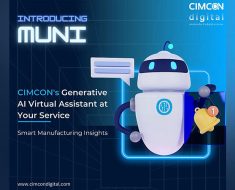There’s no denying it – AI is reshaping many (if not all) of today’s industries, prompting many organizations to accelerate their adoption of predictive and generative AI-powered tools faster than ever before. Why? Because they’re witnessing AI’s immense success in enhancing efficiency and productivity, refining operations, and driving tangible growth. It only took ChatGPT two months to get 100 million users, making it the fastest-growing consumer app in history, outpacing Facebook, Instagram, and even TikTok by a wide margin. It’s clear that businesses realize AI’s advanced ability to align with and learn from human preferences will extend beyond a passing fad.
A key area where this alignment is proving crucial is in the customer support space. Businesses must perform a balancing act between maintaining personalized touchpoints while also scaling in an increasingly digital age. AI shines here, offering a highly efficient way of achieving those touchpoints, even as user bases expand. This not only improves and future-proofs support strategies, but the increased customer retention from these efforts will directly impact bottom lines.
Early research by Bain & Company showed that for service industries, a 5% increase in customer retention produces more than a 25% increase in revenue. Given this emphasis on customer retention, it’s essential for organizations to refine their support strategies and tap into the most advanced technologies available. Generative AI, trained on extensive datasets, is uniquely positioned to proactively anticipate customer needs and provide consistent, round-the-clock support.
AI-driven insights will also elevate customer support operations, offering invaluable product development and service enhancement guidance. By doing so, customer support changes from a cost center to a vital revenue driver, unlocking untapped avenues for growth.
Observing and Amplifying the Customer Voice
When we talk about brand experience, the foundation is formed by delivering a unified, consistent standard of service and support. Offering anything less than a premier customer experience is not an option. It’s also not enough to base experience improvements in reactivity. With the power of AI at the ready, we must observe and tap into the customer signals that have been hidden or neglected for far too long.
When using AI to ensure a more uniform customer experience, it’s vital to proactively oversee all interactions between customers, human agents, and virtual agents. This level of observability is critical for gaining control over the entire support journey. Predictive AI offers a significant business advantage by unveiling customer insights that might otherwise elude support managers in routine interactions. Consequently, these can shape product strategies and establish a benchmark for future customer engagements.
In addition to predictive AI, here are a few examples of how Generative AI addresses inconsistent customer support experience challenges:
- Simulates customer interactions to enhance “soft skills” among support agents via hands-on training.
- Equips agents with structured troubleshooting methods for efficient problem resolution.
- Enhances language proficiency with auto-bidirectional translation for support representatives.
- Guides and reminds support staff to adhere to best practices in reporting and handling customer interactions.
- Streamlines stakeholder collaboration, promoting clear communication and teamwork.
Even in an era of AI, your business is still at the forefront of building trust and fostering lasting customer relationships. Looking ahead — companies shouldn’t only invest in AI technologies but also on how to properly integrate them. In other words, AI should not and cannot be the captain steering client relationships but rather a digital compass helping to do it at scale. AI must be seamlessly woven into the fabric of the company’s workflows and leveraged as a supporting tool. If correctly done, customer support leaders will see a significant boost in customer retention, lower churn rates, and stronger customer relationships.
About the Author

Krishna Raj Raja is the founder and CEO of SupportLogic. Krishna has a long history in the customer service and support industry. As the first hire for VMware India, Krishna built the company’s support organization into a multi-thousand-headcount global organization. After leaving VMware, Krishna founded a successful startup, but soon returned to his roots – noticing that the major shifts in the B2B model were creating critical gaps in the capabilities of support teams. SupportLogic was founded in 2016 and now helps some of the largest B2B technology companies in the world using AI to optimize their support experience. Krishna lives with his growing family in Santa Clara, CA.
Sign up for the free insideBIGDATA newsletter.
Join us on Twitter: https://twitter.com/InsideBigData1
Join us on LinkedIn: https://www.linkedin.com/company/insidebigdata/
Join us on Facebook: https://www.facebook.com/insideBIGDATANOW



